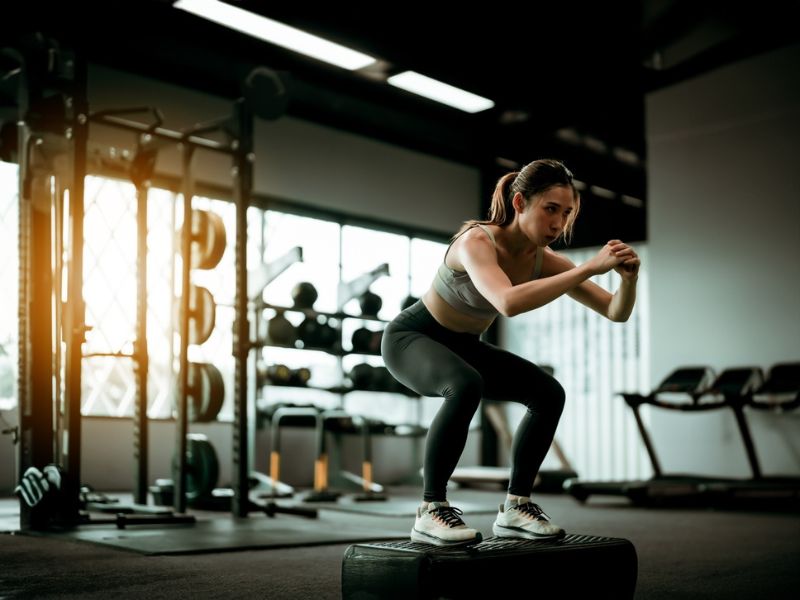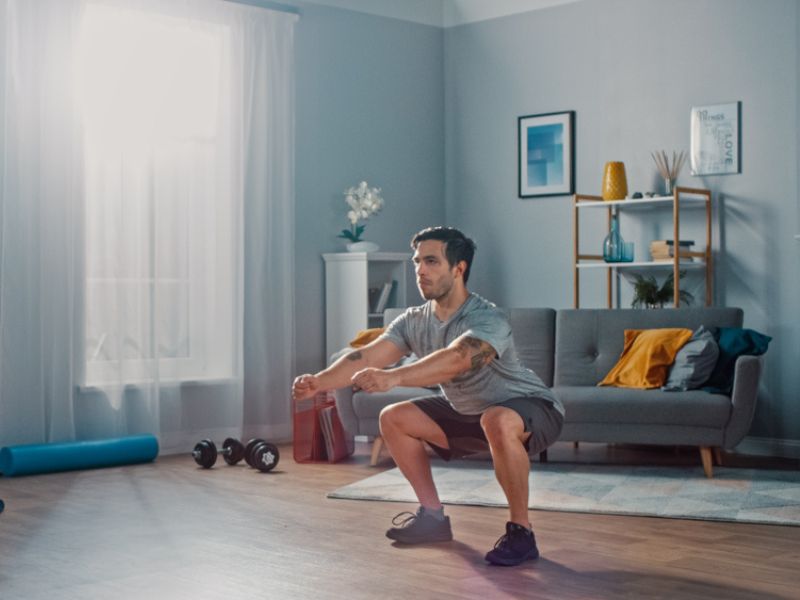There is no doubt that the squat is one of the most effective exercises. Almost no workout routine would be complete without a squat because it builds complete lower-body strength and mobility. Yet so many people struggle to do it. Many people struggle with lifting heavier or complain about how deep they can squat.
How come so many people struggle with something that seems so natural? Some might argue that we’re made to squat, but we weren’t all designed to do a gym squat. According to exercise psychologist Bryna Chrismas, squats are a part of daily life for all of us. “When I stand up from a chair or sit on the floor to play with my cats, I’m squatting. But it’s actually a very complex movement.”

Image Credit: Shutterstock/Monster Ztudio
How Does Squatting Help?
Squatting uses about 200 muscles (a third of your body’s) along with a triple extension – your ankles, knees, and hips. It takes good balance to maintain a deep squat resting position. The key is to fold over and align your weight, said Justin C. Lin, a physical therapist and executive director of Tustin’s Rehab and Revive Pain and Wellness Center.
“It’s this little balance game.” It’s like crumpling down like an aluminum can after aligning your center of balance. This balance game stretches your back, hips, knees, and ankles. It is necessary to maintain healthy cartilage for ankles, knees, hips, and backs to move into their full range of motion,” explained Bahram Jam, a physical therapist at Athlete’s Care Clinic in Toronto.

Image Credit: Shutterstock/Gorodenkoff
The inability to bend the ankle and move the foot towards the shin causes some people difficulty getting into a deep squat with their heels on the ground. Here are some tips on improving your squat:
- Record it
- Forget about depth
- Widen your knees
- Listen to your body
- Avoid the Smith machine